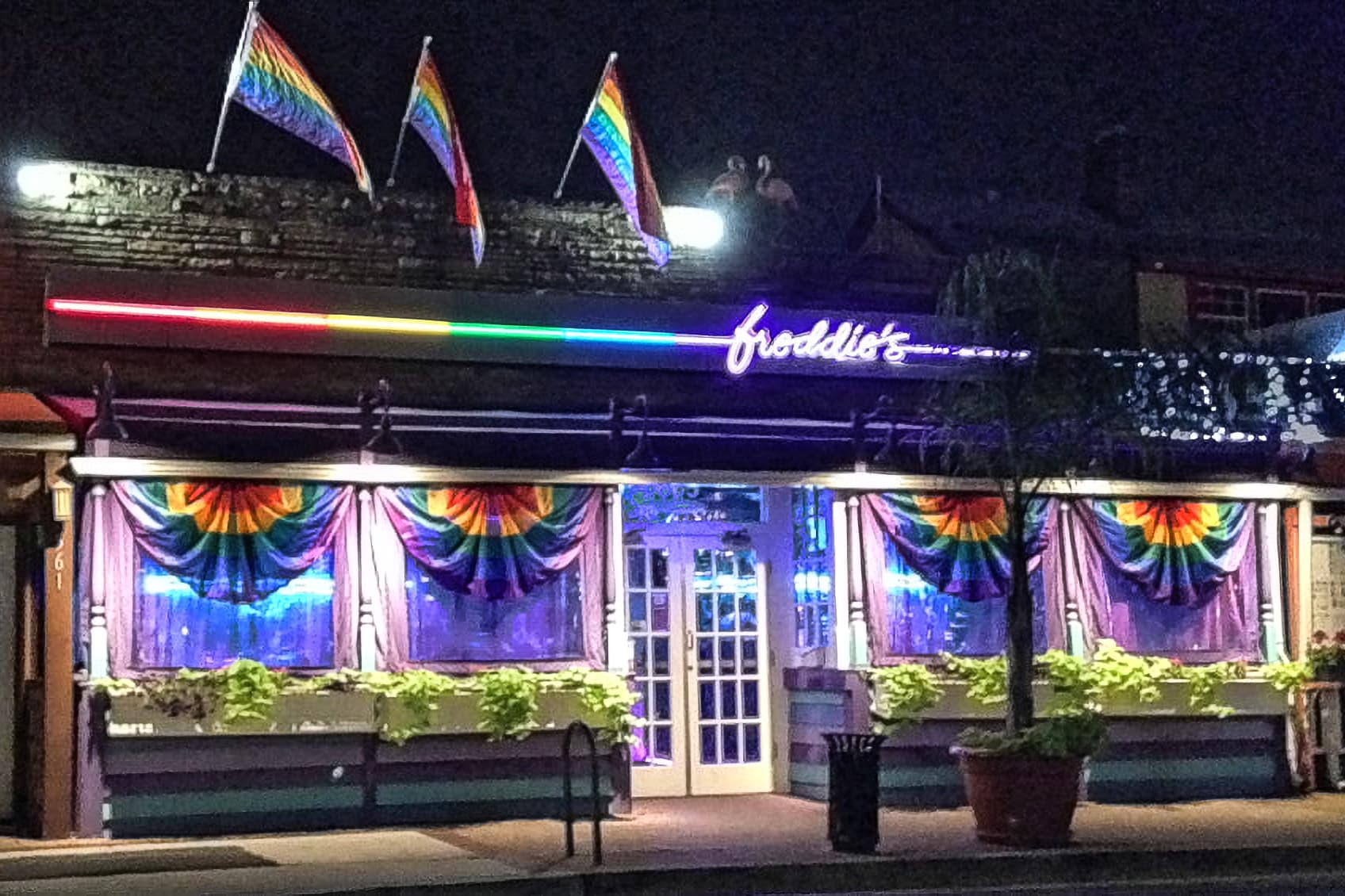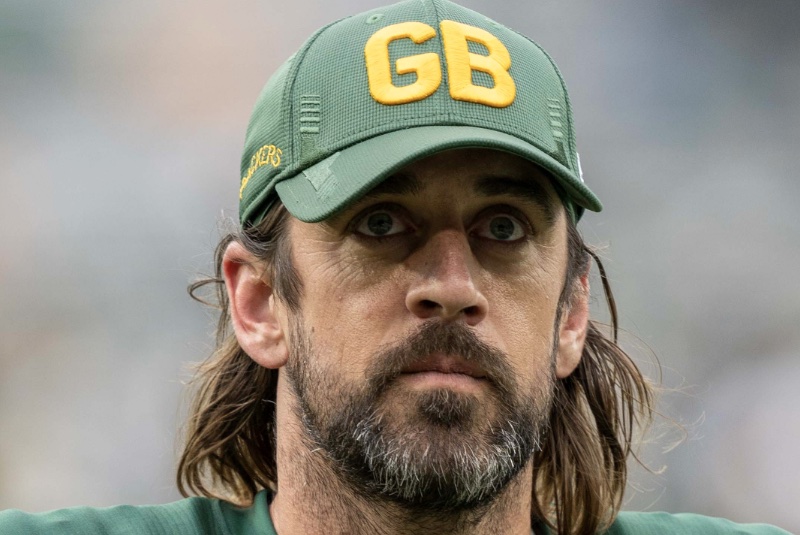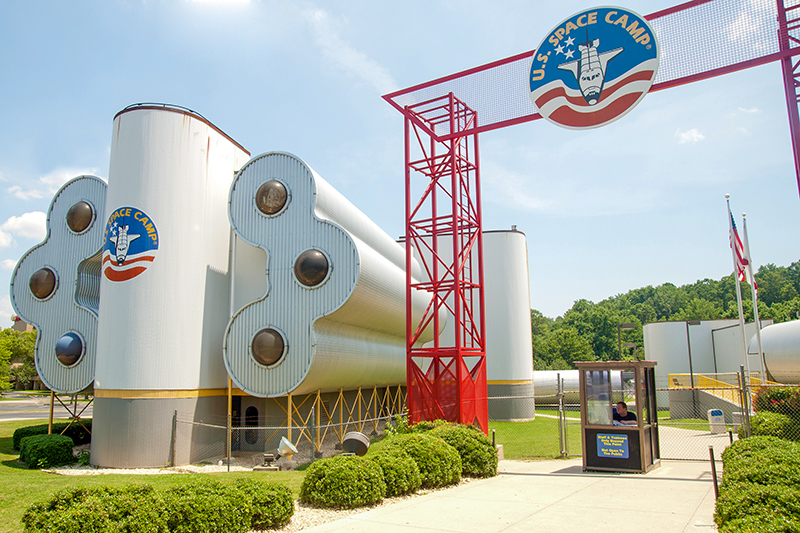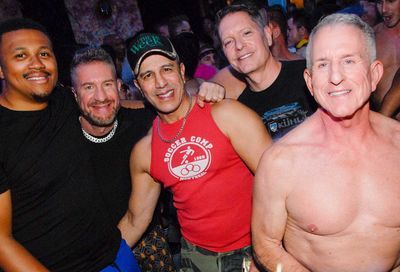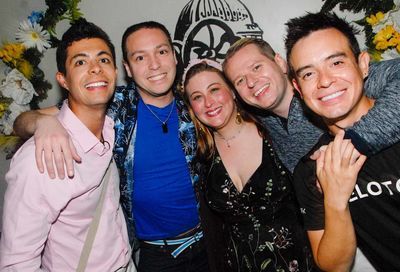Return to Service: DC’s LGBTQ bars and taverns are starting to reopen
LGBTQ-friendly bars and restaurants have adapted to cope with the pandemic, and are all eager to get back to a "new normal"
By John Riley on May 29, 2020 @JRileyMW

Ever since D.C. entered lockdown, closing all nightclubs and restaurants except for takeout and delivery, David Perruzza has used the opportunity to spruce up the interior of his building, which houses both the gay sports bar Pitchers and its lesbian companion, A League of Her Own.
“We used this time to repaint probably 85 percent of the bar,” says Perruzza. “We ripped apart every bar and cleaned it from top to bottom. Often you don’t get time to do that. We’ve changed some colors in some areas, and I redid a lot of the floors.”
At first, Pitchers and ALOHO remained closed, even though the bar has a restaurant license and could have remained open for takeout over the past few months. But Perruzza decided that the drastic decline in sales he’d experience wasn’t worth it.
“Honest to God, I think our food’s good, but I didn’t think people were going to come all the way over to Adams Morgan just to get chicken tenders and fried food,” he says. “The cost wasn’t sustainable for me to open, because the minute you open, your landlords think you’re making money, but you won’t make enough to pay your rent and stuff.”
Pitchers recently announced a partnership with Grassfed Griddle, which would typically sell its “farm-fresh” produce at farmer’s markets, but was looking for a business that could help showcase their wares. Under the arrangement, Pitchers/ALOHO will be open and selling food from 5 to 10 p.m. on Mondays, Tuesdays, Thursdays, and Fridays.
“Their sales are so low because of social distancing and everything that they needed a kitchen for prep,” says Perruzza. “I was like, ‘Why don’t we do this until we open? And, if it works out, we might partner with them for good.’ Their food is delicious, and if I’m going to open and serve food, I want my customers to have a good experience and give them something that they can’t get other places.”
The ongoing COVID-19 pandemic has forced many local establishments to get creative and adopt new business models centered around takeout service. Trade and Number Nine, for instance, have opened themselves up for carryout four days a week, offering cocktails and mixed drinks that customers can take home in a 32 oz. container. And, because of licensing laws, both establishments are offering food along with the beverages.
“At Number Nine, we’re offering popcorn because we make it on site,” says Ed Bailey, one of the sister bars’ co-owners. “At Trade, we’re offering what we call a ‘deconstructed grilled cheese sandwich,’ which means it’s a piece of bread and a slice of cheese, with instructions on what to do to make grilled cheese once you get home.
“Mostly what is being sold, beyond the drinks or food, is actually an opportunity to go to the bar and experience the atmosphere for a brief moment, see some faces you might know, and have somewhat of a social moment,” says Bailey. “Everyone’s yearning for some semblance of normalcy, and it’s been a nice moment to see the number of people who have stopped by to say hi and wave at a bartender or the door person they know. So that’s what we’re doing, and going to continue to do on Thursday, Friday, Saturday, and Sunday for the foreseeable future.”
Similarly, The Dirty Goose, which also has a restaurant license, has been selling chocolate chip and peanut butter cookies, as well as liquor and wine by the bottle and pre-mixed craft cocktails for takeout.
“We were talking to our general manager about the longevity of things, and figured, with the continued extensions, that we had to find a more viable option,” says Justin Parker, the bar’s co-owner. It allowed Parker to “get some of our employees who really needed the work into some sort of position at Goose where they could be paid hourly.”
Customers can order their cookies and cocktails online beforehand or in person. For those wishing to avoid the potential spread of COVID-19 and all human contact, prepaid orders will be left on a table, where they can be picked up throughout the course of the day.
Last month, D.C. Mayor Muriel Bowser extended the District’s lockdown to June 8. But on Wednesday, the Mayor announced that select businesses or establishments would be allowed to open on Friday, May 29 as part of the first of four phases, following recommendations contained in an 80-page report issued by the Reopen DC Advisory Committee last week.
Under the guidelines of Phase 1, as enumerated in a mayoral executive order, restaurants and establishments offering food can continue to provide takeout and delivery service, but will also be allowed to open up outdoor spaces, limiting groups to six per table with tables spaced at least six feet apart. The mayor’s order will remain in effect until at least July 24, although Bowser reserves the right to extend or amend that date based on the number of new infections and hospitalizations from COVID-19.
Once Phase 2 is implemented, establishments will be allowed to fill up to 50 percent of their indoor total capacity, although people will still be expected to maintain significant distances. Phase 3 is almost identical to Phase 2, with case-by-case approvals for expansion consistent with physical distancing. Finally, Phase 4 will mark a “new normal,” where there are no restrictions but restaurants may opt to enforce their own measures to reduce overcrowding prior to a potential second wave of COVID-19 infections, expected to take place in the fall. (No start dates for Phases 2, 3 or 4 have been provided as of yet.)
The Reopen DC report recommends that D.C. bars and nightclubs remain closed until Phase 3. At that point, they will not be permitted to exceed 50 percent indoor capacity and will be required to space people apart so that there are only five individuals filling a 1,000 square foot space.
Kelly Laczko, manager of the Adams Morgan-based Duplex Diner, notes that the restaurant has coped with the pandemic by emphasizing its takeout and delivery services.
“In the beginning, we only really had about two people in the kitchen and one person up front,” she says. “But we were able to get the [Payment Protection Program] loan, which meant we were able to hire back all the employees, and, because of the additional days that people brought in more business, we were actually able to add one additional person in the kitchen.”
Duplex has been selling its trademark Lemon Squeeze cocktails in party-pack form, and has opened itself up for delivery through the online food ordering website GrubHub, a shift in the restaurant’s business model that Laczko believes is likely to continue in the coming months.
“Even if we manage to open up, we are still going to have to heavily rely on our to-go service, because we only have a 100-person capacity inside the diner,” she says. “So we’re hoping that for Phase 1, we can still rely heavily on the to-go and delivery for customers who might not be comfortable coming in yet. My plan is to use the read-only thermometer for people when they start coming in, just to check their temperatures. And the plan right now is to not let any groups larger than four sit together.”
Doug Schantz, owner of Nellie’s Sports Bar, says due in part to its location at the intersection of U and 9th Streets NW, the bar was the “perfect candidate” for shifting over to the takeout and delivery model, and has been selling ready-made cocktails for home consumption, as well as a limited menu of some of the its more popular items, such as chicken tenders, tater tots, and curly fries.
“When we first got the notice to close, I continued to pay everyone that was on salary” — about 15 kitchen staff — “and then, all of the bartenders and the other staff went on unemployment right away,” says Schantz. “And then there was the three- or four-week process of ‘All right, you can now sell alcohol out of your window with a food item.’ And we actually have a to-go window, and we’re perfectly situated with that corner, so people started to come because there was nothing else to do but go to the grocery store and stand in line, six feet apart, and all that sort of thing.”
Schantz is cautious about the prospect of opening up too quickly. He notes that Nellie’s has a sidewalk café permit, but doesn’t feel it’s necessary to utilize it at the present time.
“I honestly think the smartest thing to do would be to see how it sort of plays out in the first month or two,” he says. “We’re starting to do some of the things that we do best, like our slushies and the food that’s popular. And we’re going to hone in on that and try to be able to make a profit off of that and not introduce people back into the bar until maybe Phase 2 or so.”
Nellie’s, along with neighboring bars and restaurants like Uproar, Shaw’s Tavern, and Bistro Bohem, has also been delivering 200 meals to first responders and local hospitals for each of the last ten Fridays — something that mirrors the approach being taken by Freddie’s Beach Bar, in Arlington, on the other side of the Potomac River.
As previously reported, Freddie’s has partnered with retail giant and soon-to-be neighbor Amazon to prepare and deliver meals to first responders and frontline workers in the area. Last Friday, the bar opened up for the first time to the general public for carryout and delivery services.
“We wanted to make sure that we didn’t spread ourselves too thin,” says manager Tony Rivenbark, referring to the preparation of care packages for frontline workers. “We’re basically going to make a slow transition so that we don’t do anything too quickly and mess anything up.
For Northern Virginia, where COVID-19 infections are higher than the rest of the state, bars and restaurants are lagging behind in terms of what steps they can take to reopen.
“In the rest of the state, the restaurants are allowed to open their back parking lots or their front parking lots, use sidewalk spaces that they weren’t able to use in the past, and now people can have drinks out in the parking lots or sidewalk,” notes Rivenbark. “We’re a week behind on that, so we won’t actually be able to do that until Friday, May 29. We’re not in a hurry to get people inside.”
Rivenbark says that, once they can move people indoors, the bar will follow any local regulations designed to enforce social distancing measures to the letter, “and then some.”
“I don’t want a single employee or customer to get sick,” he says. “But at the same time, we also have rent to pay so we’ve got to make sure that we have the right balance there.”
Back across the river, Tony Askarinam, co-owner of 17th Street’s Dupont Italian Kitchen says his restaurant has been open seven days a week for carryout and delivery, though for a limited number of hours, from 3 to 10 p.m. Nonetheless, he says, the restaurant is only getting about 20 percent of the business it was getting prior to the mayor’s stay-at-home order.
“Right now, we are working with a minimal staff. We have two people in the kitchen, two people in the dining room, and a cleaner,” Askarinam says. “We are, this week, going to be calling some of our staff to come back one by one as long as the business keeps up. But usually, after 8:30 or 9 at night, the street is dead. Nobody’s coming, nobody’s ordering anything. There’s nobody walking on the street, nobody driving. And there’s no tourists in town, and this is a time of year that tourism booms in Washington D.C., so we are missing them, too.”
Like Dupont Italian Kitchen, a steep decline in sales has been the reality for other establishments. Rob Heim, general manager of Shaw’s Tavern, says that the restaurant has been open for pickup and delivery, but the pandemic is taking its toll.
“We’ve been doing the best we can,” he says. “I was just looking at the sales numbers from March 15, which was the last day we were open, until just a couple of days ago, and in that time, we have lost almost $400,000 in sales,” he says. “It’s usually the busiest time of the year with Howard’s graduation, which we missed out on, with the annual Funk Parade, with Pride coming up, which we’ll also miss out on — all those big events.”
Heim says the Restaurant Association of Metropolitan Washington has been good about updating restaurant and bar owners about the latest recommendations for reopening, and believes Shaw’s Tavern will be able to comply.
“We do have a nice-sized patio, which will help hopefully, as well as ABRA’s extending of the selling of alcoholic beverages through the window until November,” he says. “I think they’re doing that with the thought that it might take a long time till we get back to a hundred percent capacity. So we’ll definitely take advantage of that.”
The restaurant’s weekly drag shows and musical performances have moved online — and will remain virtual for the foreseeable future — but continue to attract large numbers of viewers, who have been generous with tips through Venmo, PayPal and other online payment platforms.
“We’ve been doing virtual trivia every Saturday night and virtual drag bingo on Sundays and they’ve just been very popular,” he says. “A lot of people say that it’s been the highlight of their week to have something fun to look forward to when they’re kind of cooped up in their homes, so we’re happy to provide that.”
Howard Hicks, manager of the Green Lantern — which does not have a restaurant license — says the bar is taking advantage of the closure to take care of maintenance issues, and is waiting for more guidance from the city about when it can reopen.
“One of the things we benefit from is we have the second floor that can space people out, so we have square footage that’s typically only utilized on the weekends,” Hicks says. “Weekends will be much harder for us as well, as they will for every bar or club in the city, as far as how to socially distance. So we may be looking at how to encourage people to come out during the week when we typically have fewer people. So if we were allowed to be at 50% capacity, we have a way to keep our business at the levels it was at, with the exception of Thursday, Friday, or Saturday nights.”
In the meantime, the bar has been holding fundraisers to help its employees, including a GoFundMe page, and providing a virtual tip jar, complete with employees’ Venmo or PayPal usernames, so patrons can leave a little something for their favorite bartenders or barbacks. Hicks says that, fortunately, most of the employees were able to sign up for unemployment benefits in a fairly timely manner.
“Right now, a lot of us are just in a holding period,” he says. “I think we’re all just sort of waiting for that green light from the city to reopen. We want to make sure that the staff is well taken care of, as far as their health. We don’t want any of our customers getting sick either, so we’re looking at everything we can possibly do that’s within our control to ensure that.”
Bomb Threats Target Freddie’s Beach Bar: Update
Owner Freddie Lutz says threats are tied to drag queen storytime events and have also been lodged against his personal residence.
By John Riley on April 11, 2024 @JRileyMW
A Drag Queen Story Time event scheduled for Saturday, April 6, at Freddie's Beach Bar in Arlington, Va., was delayed for over an hour after an unknown person emailed a bomb threat.
Local police evacuated the popular LGBTQ bar while a bomb-sniffing dog searched the premises.
Ultimately, the dog found no trace of any explosives. Patrons of Freddie's, who had clustered in the outdoor seating area and parking lot behind the bar, eventually returned inside, and the show -- featuring musical numbers and children's book readings by drag queen Tara Hoot -- continued.
Aaron Rodgers Suggests AIDS Was Created by U.S. Government
NFL quarterback Aaron Rodgers is getting pushback on social media for comments he made about the genesis of the AIDS epidemic.
By John Riley on April 18, 2024 @JRileyMW
New York Jets quarterback Aaron Rodgers stirred up a hornet's nest when he made comments accusing the U.S. government of engineering the AIDS outbreak of the 1980s.
During an appearance on the Look Into It with Eddie Bravo podcast in February, the NFL quarterback suggested that Dr. Anthony Fauci, the former chief medical advisor to the president of the United States, and the former director of the National Institute of Allergy and Infectious Diseases, had played a key role in the creating AIDS epidemic, which served as the "blueprint" for the COVID-19 pandemic.
Alabama Republicans Want Trans Space Camp Employee Fired
After the father of an 11-year-old girl complains, Alabama Congressmen demand the firing of a Space Camp transgender employee.
By John Riley on March 18, 2024 @JRileyMW
Several Alabama Republicans have demanded the termination of a transgender employee at Space Camp, arguing that their presence poses a danger to participating students.
Space Camp, an educational program on the grounds of the U.S. Space & Rocket Center museum in Huntsville, Alabama, provides residential and educational programs for youth on topics such as space exploration, aviation, and robotics.
The center hosts approximately 26,000 youth annually, with specific programs for different age groups.
One of those programs, "Space Camp," primarily serves children aged 9 to 11. It seeks to balance educational, classroom-style learning with hands-on activities and entertainment offerings.
Support Metro Weekly’s Journalism
These are challenging times for news organizations. And yet it’s crucial we stay active and provide vital resources and information to both our local readers and the world. So won’t you please take a moment and consider supporting Metro Weekly with a membership? For as little as $5 a month, you can help ensure Metro Weekly magazine and MetroWeekly.com remain free, viable resources as we provide the best, most diverse, culturally-resonant LGBTQ coverage in both the D.C. region and around the world. Memberships come with exclusive perks and discounts, your own personal digital delivery of each week’s magazine (and an archive), access to our Member's Lounge when it launches this fall, and exclusive members-only items like Metro Weekly Membership Mugs and Tote Bags! Check out all our membership levels here and please join us today!
The Magazine
-
Most Popular
 Trolls Hate on No. 1 NFL Draft Pick for Pink Phone and Nail Polish
Trolls Hate on No. 1 NFL Draft Pick for Pink Phone and Nail Polish  George Santos, Duped by NAMBLA Prank, Exits Race for Congress
George Santos, Duped by NAMBLA Prank, Exits Race for Congress  'Challengers' is a Sexy, Ripping Love Match (Review)
'Challengers' is a Sexy, Ripping Love Match (Review)  The Powerful Story Behind David Archuleta's ‘Hell Together’
The Powerful Story Behind David Archuleta's ‘Hell Together’  'Human Museum' Puts the Bots in Charge (Review)
'Human Museum' Puts the Bots in Charge (Review)  The Awesome Power of Katy O'Brian
The Awesome Power of Katy O'Brian  GLOW's Secret Garden Is An "Escape...With A Chill Vibe"
GLOW's Secret Garden Is An "Escape...With A Chill Vibe"  California Mayor Recalled After Coming Out as Transgender
California Mayor Recalled After Coming Out as Transgender  Ralph Fiennes and Indira Varma Soar in STC's 'Macbeth' (Review)
Ralph Fiennes and Indira Varma Soar in STC's 'Macbeth' (Review)  Grindr is Being Sued for Sharing HIV Statuses
Grindr is Being Sued for Sharing HIV Statuses
 'Challengers' is a Sexy, Ripping Love Match (Review)
'Challengers' is a Sexy, Ripping Love Match (Review)  'Human Museum' Puts the Bots in Charge (Review)
'Human Museum' Puts the Bots in Charge (Review)  George Santos, Duped by NAMBLA Prank, Exits Race for Congress
George Santos, Duped by NAMBLA Prank, Exits Race for Congress  Grindr is Being Sued for Sharing HIV Statuses
Grindr is Being Sued for Sharing HIV Statuses  Judge Blocks Ohio's Anti-Transgender Bans
Judge Blocks Ohio's Anti-Transgender Bans  D.C. Courts Pop-Up Businesses Ahead of WorldPride
D.C. Courts Pop-Up Businesses Ahead of WorldPride  Cher to be Inducted in the Rock & Roll Hall of Fame
Cher to be Inducted in the Rock & Roll Hall of Fame  Texas Governor Wants to Ban Trans People from Being Teachers
Texas Governor Wants to Ban Trans People from Being Teachers  For Don Mancini, Chucky is So Much More Than a Killer Toy
For Don Mancini, Chucky is So Much More Than a Killer Toy  LGBTQ Teen Sues School Over Suspension For Rap Lyrics
LGBTQ Teen Sues School Over Suspension For Rap Lyrics
Scene
Metro Weekly
Washington's LGBTQ Magazine
P.O. Box 11559
Washington, DC 20008 (202) 638-6830
About Us pageFollow Us:
· Facebook
· Twitter
· Flipboard
· YouTube
· Instagram
· RSS News | RSS SceneArchives
- "We use cookies and other data collection technologies to provide the best experience for our customers. You may request that your data not be shared with third parties here: "Do Not Sell My Data
Copyright ©2024 Jansi LLC.




